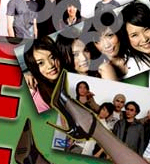


Ideas and Information
Promotions
Promotions Planning: Types of Promotions
A thorough look at promotion planning issues
Introduction
This is a summary of contemporary opinions about the role of promotions, how to verify that they are designed, and how to promote them. I've consulted not only my own experience, but have requested input from several other programmers and have referenced what few materials I could find. This is certainly an area which is more art than science. There are many philosophies and many ways to succeed. But I think you will find that these ideas represent a mainstream view and will be helpful as you design contests and promotions.
Types of Promotions
There are three general types of promotions, from the standpoint of when they air and their importance to the programming:
• Major Station Promotion
Typical examples are “A Car A Day In May” and "Sing Your Way To Hawaii ”.
• Secondary Station Promotions
These will usually be limited to a single daypart. Typical examples are “Front Row Concert Tickets For Your Entire Office” and “Rap Like Eminem To Win Tickets To A Detroit Concert” which would be targeted to the midday and evening programs respectively.
• Ongoing Time Bench Promotions
These are daily listener participation contests, often involving a guessing game, such as “Tricky Trio” where the listeners identify three songs from short snippets of each. The prize is not usually the key. This type of promotion should be a part of the personality of the show and there should be an entertaining interaction between the host and the contestant.
Promotion Goals
In terms of goals, promotions can be divided into four types. Many promotions fall into more than one type. For example, we can talk about cume building promotions and TSL building promotions. But a good contest should build both.
• 1. Cume Promotions
These are major mass appeal giveaways and promotions that are designed to create curiosity and even appeal to greed in order to entice people to sample the station. Large cash contests, cars and vacation packages are typical prizes.
The disadvantage is that the expense is huge, and the benefit often temporary. The basis of the appeal is not the station's normal programming, and so people come for the contest. But because it is the only thing they find appealing, they leave the minute the contest is over. And often, the contest so dominates the station that the normal message about the station and the normal personality of the station are compromised. In that case, you may actually lose some of the listeners you had going into the contest.
continued...
• 2. TSL Promotions
A TSL promotion is more obviously directed toward your most loyal listeners, and is an attempt to reinforce their loyalty. It is also hoped that light listeners will listen longer.
These promotions will tend to tie into listener lifestyles and the relationship between the listeners and the station. Very often, winning will require either a demonstrated knowledge of the music, more than a person simply tuning in to win money might have. Or at least, the prize might be appreciated far more by somebody who is a fan of the station's music.
An example would be requiring listeners to sing a particular Red Hot Chili Peppers Song to qualify for airfare and tickets to their concert, or to create an Eminem-like rap and record it, as an entry for a trip to Detroit and an Eminem concert, as was done by Highveld in Johannesburg .
• 3. Sales Promotions
For some promotions, the real purpose is to create extra exposure for a client and to give their product or service the added value of being connected with the station's promotional activities.
The benefit to the advertiser is easy to calculate. For the listener, it can be harder. The most important question is “What's in it for the listener?”
Does the way in which they can win have any direct connection with listening to your station? Is the product sexy and desirable? Is it difficult to obtain in any other way? Is it unique?
Sales promotions that don't meet the need for promotions to build TSL and cume, or which don't give good answers to the questions above will hurt the station more substantially than the revenue that is generated.
An effective sales promotion will benefit the image of both the station and the advertiser with your listeners.
Today, many stations are finding that using the station's Web site is an effective to communicate in a detailed way with listeners about the contest, while not cluttering up the station with too much on-air detail.
• 4. Community Service
These are the promotions that generate good will for the station. If, as many people feel, a radio station should be “a club you want to belong to” then these promotions can be very valuable.
What will matter to your listeners is very specific. Your country and your city have their own concerns. A national station has to think differently than a local station. Earth Day Cleanup, Pet Adoption, Toys For Tots, Blood Drives… there are hundreds of ways to make a difference and give back to the listener community.
Golden Rule for Promotions:
- Tell them what you're going to do.
- Tell them what you are doing.
- Tell them what you did, while teasing the next thing you're going to do.
More ideas and information on this topic: